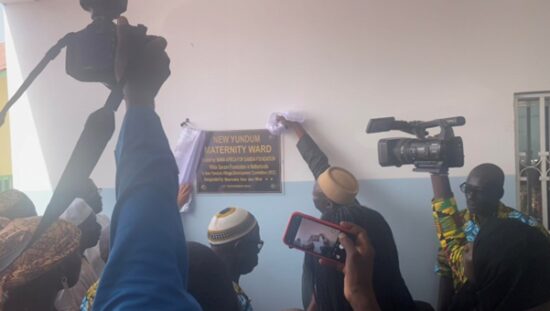By Omar Bah
The Permanent Secretary, Ministry of Lands, Regional Administration and Religious Affairs, Saffie Sankareh-Farage, has confirmed that the government has appointed executive coordinators for Banjul and Kanifing Municipality.
Bakary Singhatey of Dippa Kunda is appointed as the Executive Coordinator for Kanifing Municipality to be deputised by Amul Nyassi of Bwiam and former National Assembly Member for Foni Kansala while in Banjul Ebrima Jawo, a former mayoral candidate is appointed as Executive Coordinator.
The Standard needed help to reach the two executive coordinators. Still, the deputy executive coordinator for KM, Amul Nyassi, acknowledged receiving his appointment letter and vowed to do his best to meet the expectations and requirements of the position.
In December last year, President Adama Barrow announced he would appoint Kanifing Municipality and Banjul governors to halt what he described as “efforts undermining his government’s programs.”

The opposition United Democratic Party mayors lead both KM and Banjul councils, and the president’s pronouncement seems to signal that he is not confident that his party could snatch those seats in next April’s local government elections. A few days after the president’s announcement, lawyer Lamin J Darbo told online media platform Kerr Fatou that the president has no constitutional powers to appoint Banjul and Kanifing Municipality governors.
“The Constitution has provided a high degree of autonomy for the local councils. The president or whoever is administering that scheme should ensure that the conduct of government complies significantly with that constitutional language. So, suppose they say a high degree of autonomy. In that case, you cannot come from the State House and say I want to administer your councils for you, or I want to administer your councils for you through the Ministry of Local Government, as we are seeing now,” Darbo said at the time. He said the 1997 Constitution has vested powers as the supreme law of The Gambia, and any law found to conflict with it is void.
“It does not matter what the president wants. The law is clear. Go on your own journey because you believe you are an all-powerful president. You can probably pass legislation, especially if you control the National Assembly, which is not a problem. But that legislation will conflict with the constitution, and you cannot implement it because if you do and you are challenged at the Supreme Court, the Supreme Court may declare it null and void,” he added.





